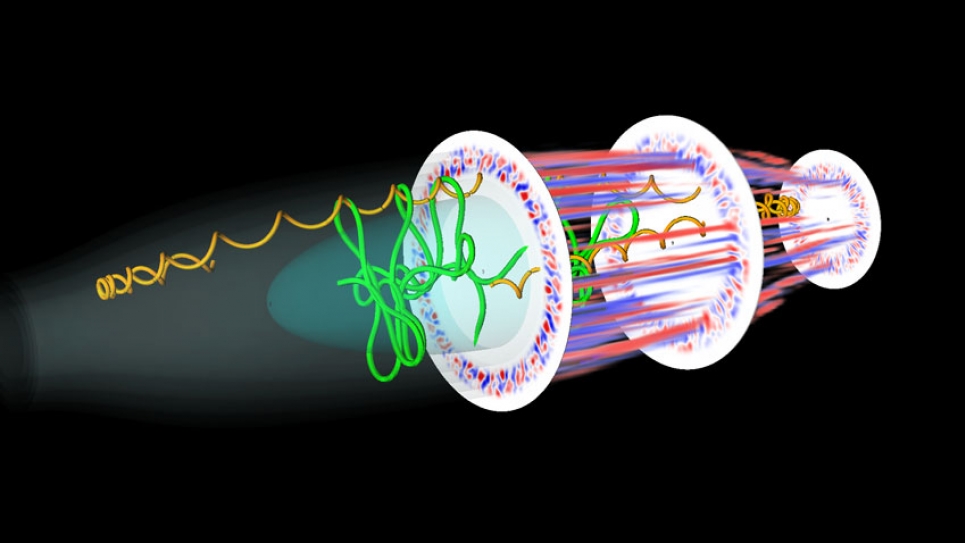
Kinetic Simulation of FRC Stability and Transport
Magnetic confinement fusion offers the prospect of a carbon-neutral, environmentally responsible, and inexhaustible energy source. As part of an innovative class of magnetically confined fusion plasma experiments, researchers at Tri Alpha Energy (TAE) recently have shown that the confinement of energy improves with increasing plasma temperature. Following the development of an advanced Field Reversed Configuration (FRC) magnetic confinement device to contain the hot plasma needed to fuel fusion, TAE is now building a new device, named C-2W, to study the confinement of energy at still higher temperatures and inform the design of a prototype reactor.
Two strategic computing initiatives are underway at TAE to support the C-2W experimental program. The first is the development of a first-principles code to study the micro-stability of the plasma, namely kinetic microturbulence—the chief cause of heat losses from the plasma. The second is the development of a kinetic code to study macro-stability properties of the plasma. Together, the codes span orders of magnitude of spatiotemporal scales, to find stable operating points in advanced parameter regimes and to make quantitative predictions of the turbulent losses.
With this INCITE award, the TAE team will use DOE computing resources to (1) validate the codes against the experiment, (2) mitigate experimental risk inherent in the exploration of new parameter regimes, (3) accelerate the optimization of C-2W operating scenarios, and (4) use validated models to predict stable and efficient operating points for future FRC reactor design concepts.